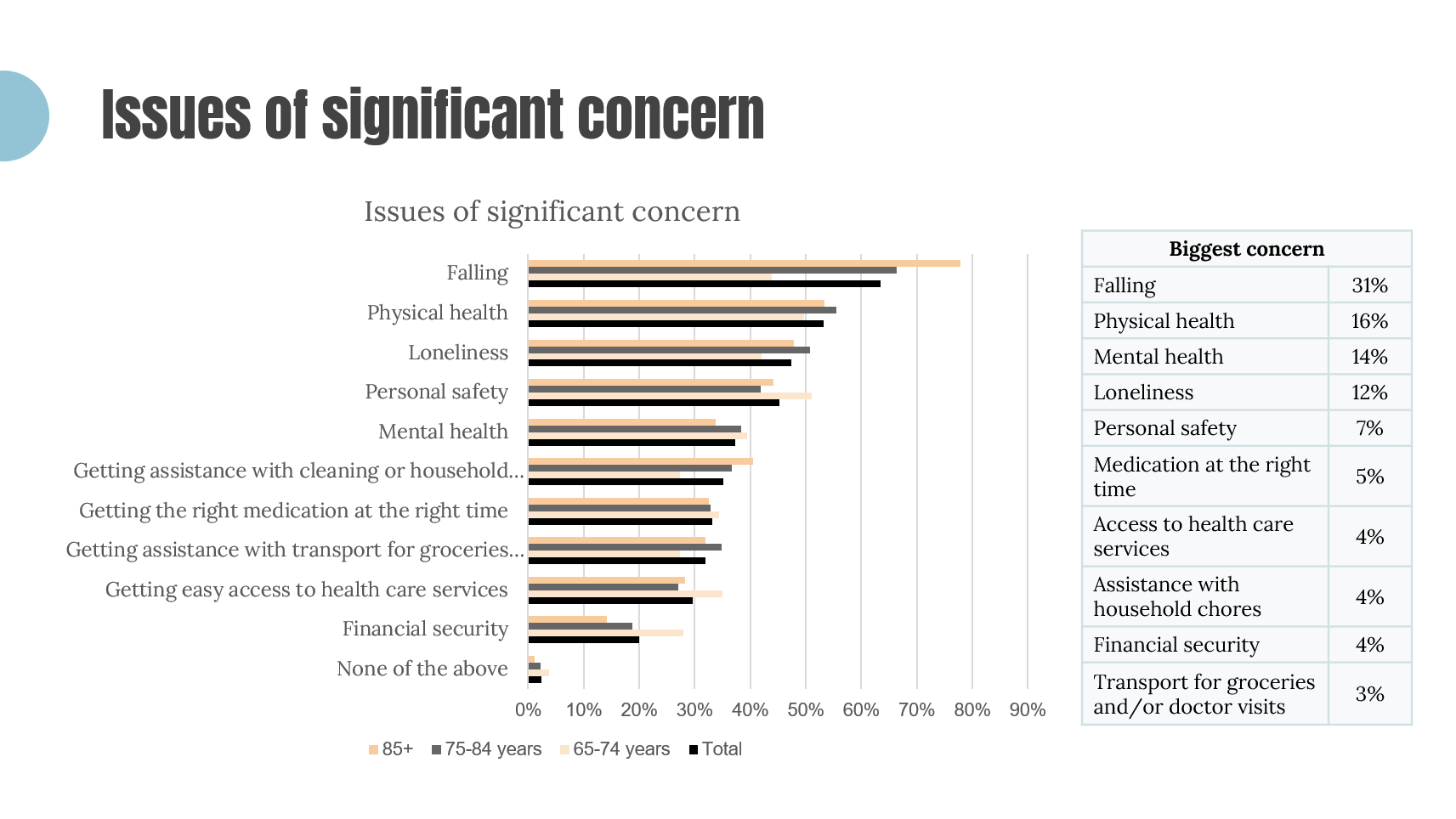Pilot Study on Older Australians - Quality of Life (Part 2 of 3)
In this week’s article, we present the findings on the quality of life for older Australians, covering their care needs, medical conditions, physical activity and primary concerns. If you missed part 1 of our findings, you can find it here.
Key Highlights
Over 70% of those aged 65+ require some form of care.
Over 50% of all age brackets are helped with daily activities.
Basic care needs increase with age and progresses to needing full time care for 14% of those aged 85+.
Those living with a spouse require less assistance than those living alone, with a family member or in care.
Key Highlights
More than 80% of those aged 65+ have a medical condition.
Mobility issues are the most prevalent condition, this is experienced by almost 50% of respondents.
Dementia effects 1 in 5 older Australians in this study. This is approximately double the estimate by the Australian Institute of Health and Welfare of 384,476 Australians with dementia aged 65+. (ABS - Population Data)
Key Highlights
15% of Older Australians undertake very little or no physical activity.
The majority indicate light activity at least a few days per week.
Activity declines with age. By 85, 22% are effectively sedentary.
Key Highlights
1 in 4 older Australians still have good vision.
Majority wear glasses or contact lenses at least some of the time.
Key Highlights
Over 60% of older Australians and their relatives have concerns around falling.
Falling is also the area of greatest concern.
Over 1 in 4 respondents use a walking aid or require a person assisting. (Not shown in chart above)
Loneliness (47%) and mental health (37%) are a concern for many.
Alarmingly, 26% receive only 1-4 hours of social personal contact per week an a further 6% receive less than an hour per week. (Not shown in chart above)
Personal Safety is a concern for > 40% of respondents.
Getting assistance with household chores, transport, access to care services and medication are a concern for more than 1 in 4 older Australians.
Summary
More than 2 in 3 older Australians require daily assistance and 4 in 5 have some form of medical condition that requires management. Loneliness and mental health are also areas of significant concern with a significant proportion of older Australians looking to be at risk of loneliness. The greatest concern is around falling and its consequences.
Efforts should be made to ensure older Australians get the daily assistance they need, particularly in home and where family support is not available. This assistance should address social needs as well as mitigating concerns and risks around falling.
In our final article next week, we will present our findings on falls, the use of personal emergency response systems, safety and freedom of movement of older Australians.
Want to know more on our fall detection system? Get in touch with us at info@livius.com.au or click the button below.





